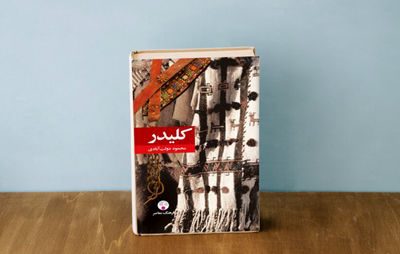Mohammad-Ali Azarshab, a renowned professor of Arabic literature and language, told IRNA that since contemporary Persian novels have been welcomed in Arab countries, Mahmoud Dowlatabadi’s Kelidar has been translated into Arabic and published in Cairo.
Kelidar is story of a nomadic Kurdish family, who moved to a village in the outskirt of Sabzevar city in Khorasan Province, northwest Iran.
The story, narrated in lyrical language, is set against the highly charged political climate in Iran after World War II, between 1946 and 1949. Kelidar is the name of a mountain and a village in Sabzevar, Khorasan Razavi Province, where the events of the novel take place.
The story of the novel was written based on real life of the main character, Kolmishi Gol-Mohammad, who was a known hero in Sabzevar during Dowlatabadi’s childhood. The story happened during a highly volatile political situation in Iran after World War II, between 1946 and 1949.
Kelidar, which has its name after a mountain near Sabzevar, where the story happened there, is unknown in terms of pronunciation for many people. Although Dowlatabadi himself pronounced it “Klidar,” the novel is being pronounced Kelidar.
Despite the fact that the novel has been written based on a real story, Dowlatabadi added fiction to the novel anywhere needed in order to turn the story into a coherent and impressing one.
Some are of the opinion that Kelidar is the second longest novel in the world after the French novel of “In Search of Lost Time,” a novel in seven volumes written by French author Marcel Proust.
Source: IRNA

